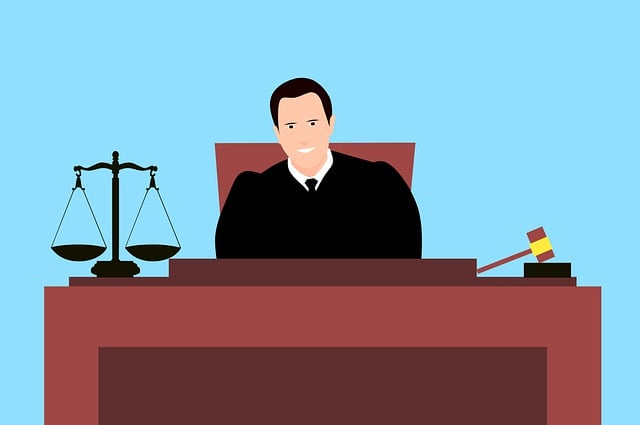Consumer Protection Laws (CPLs) are essential for safeguarding consumer rights in business interactions, ensuring transparency and accountability. Both consumers and businesses should understand these laws to take action against unfair practices. Filing a lawsuit involves gathering evidence, consulting legal experts, and navigating potential negotiations or litigation, which can lead to monetary damages or injunctive relief. Businesses can proactively avoid lawsuits by identifying regulatory compliance issues, implementing tracking systems, training employees, and fostering an ethical culture. After a lawsuit, ongoing compliance with regulations is crucial to prevent future legal issues, with legal professionals guiding clients through post-suit action plans for long-term stability.
Navigating regulatory compliance issues is crucial for businesses aiming to avoid legal pitfalls and maintain consumer trust. This article guides you through essential aspects of consumer protection laws, helping you identify potential problems before they escalate. We provide a comprehensive step-by-step guide on how to file a consumer protection lawsuit, along with post-suit actions to ensure ongoing compliance. By understanding these processes, businesses can protect themselves and their customers effectively.
- Understanding Consumer Protection Laws and Their Relevance
- Identifying Potential Regulatory Compliance Issues
- The Process of Filing a Lawsuit: Step-by-Step Guide
- Post-Lawsuit Actions: Ensuring Continued Compliance
Understanding Consumer Protection Laws and Their Relevance

Consumer Protection Laws (CPLs) are a crucial set of regulations designed to safeguard the rights and interests of consumers in their interactions with businesses. These laws cover various aspects, from product safety and quality to advertising practices and fair pricing. Understanding CPLs is essential for both consumers and businesses, as it ensures transparency and accountability. For instance, knowing your rights under these laws can empower you to take action if you’ve been a victim of unfair business practices, such as deceptive marketing or subpar goods.
If you believe you’ve fallen prey to illegal consumer protection violations, one course of action is to file a lawsuit. How to File a Consumer Protection Lawsuit involves several steps, starting with gathering evidence and consulting legal experts in either CPL-specific or general criminal defense, including white collar defense, depending on the nature of the case. The process often includes presenting your grievances to relevant regulatory bodies, which may lead to negotiations or, if unsuccessful, litigation. In some cases, jury trials can be an outcome, emphasizing the importance of a robust understanding of these laws and their implications.
Identifying Potential Regulatory Compliance Issues

Identifying potential regulatory compliance issues is a proactive step for any business aiming to achieve extraordinary results in its industry. It involves a thorough review of current practices and policies to ensure adherence to relevant laws and regulations, particularly those related to consumer protection. By staying ahead of these requirements, companies can mitigate risks and avoid costly lawsuits, such as those filed under consumer protection laws.
This process includes examining every stage of the investigative and enforcement process, from initial reporting obligations to post-violation corrective actions. It also demands a robust internal control framework that facilitates white-collar defense strategies. Businesses should implement systems that track regulatory changes, train employees on compliance matters, and foster an ethical culture that encourages reporting potential violations internally before they escalate.
The Process of Filing a Lawsuit: Step-by-Step Guide

Filing a consumer protection lawsuit involves a structured process that requires careful navigation through legal procedures. The first step is to identify the relevant laws and regulations that have been violated, which could include false advertising, unfair business practices, or product liability issues. Once determined, individuals or groups affected by these violations can consider legal action.
Next, they must assemble evidence, such as documentation, contracts, communications, and any relevant records, to support their case. This step is crucial for building a strong argument. After gathering the necessary proof, the plaintiff (or group of plaintiffs) prepares and files a lawsuit in the appropriate court, typically starting with a complaint that outlines the facts, legal claims, and requested relief. The process then progresses through various stages, including service of process, where defendants are notified, followed by fact discovery, expert witness identification, and potential settlement negotiations. If the case goes to trial, it may result in a jury verdict or, in some cases, the judge makes a decision, ultimately leading to a resolution that could include monetary damages, injunctive relief, or both, to protect consumer rights across the country. Avoiding indictment is a key consideration throughout this process, ensuring all legal requirements are met and evidence presented in a timely and proper manner.
Post-Lawsuit Actions: Ensuring Continued Compliance

After a Consumer Protection Lawsuit is filed, the focus shifts to ensuring ongoing compliance with regulations to prevent future legal issues. This involves a thorough review of existing policies and procedures within the organization. Businesses must implement robust internal controls and training programs to educate employees on the latest regulatory requirements. Such measures not only help in avoiding similar lawsuits but also demonstrate a commitment to ethical business practices, fostering trust among both corporate and individual clients.
To maintain compliance, companies should regularly monitor industry trends and legislative changes, adapting their strategies accordingly. For his clients’ benefit, legal professionals often offer guidance on post-suit action plans, including the potential for mediation or settlement negotiations. The goal is to achieve a complete dismissal of all charges, ensuring the organization’s long-term stability and reputation in the market.
Understanding consumer protection laws and navigating potential regulatory compliance issues is essential for any business aiming to maintain integrity and trust. By identifying and addressing these concerns proactively, companies can avoid costly lawsuits and ensure long-term success. Our comprehensive guide on how to file a consumer protection lawsuit outlines the necessary steps, from recognizing violations to post-suit actions, empowering businesses to protect both their interests and their customers. Equip yourself with knowledge and take action to foster a culture of compliance within your organization.






